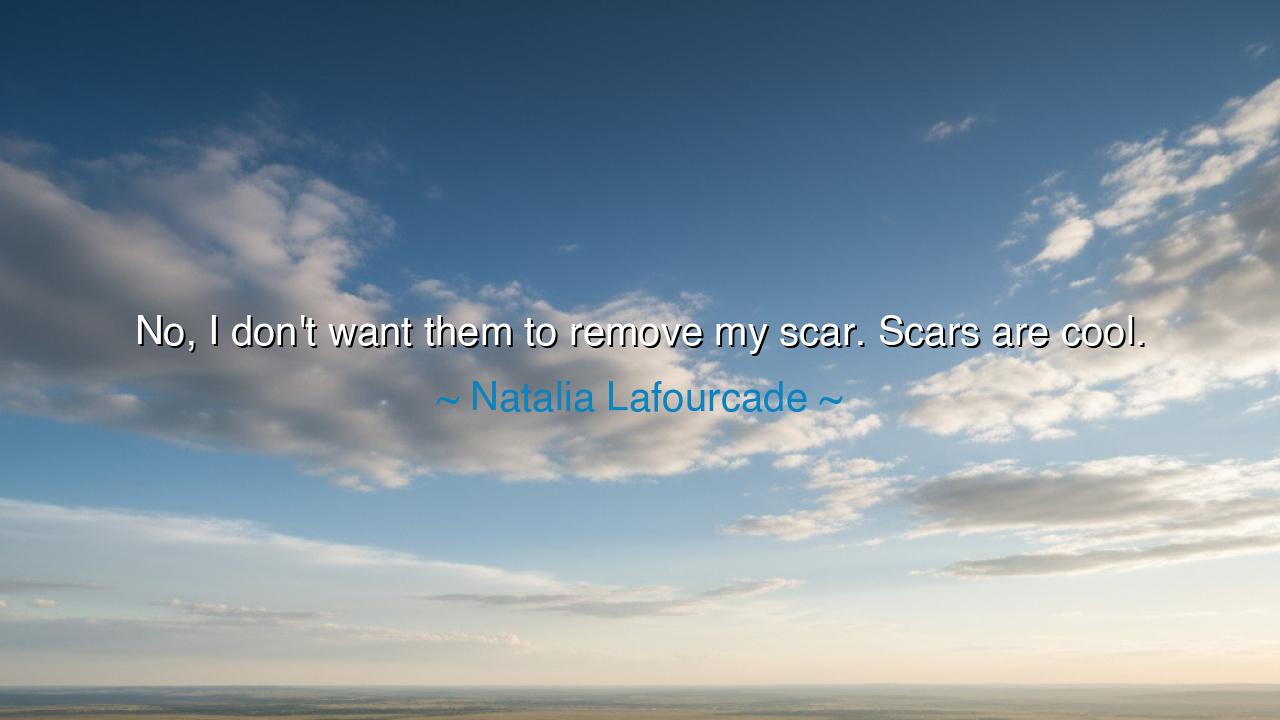
No, I don't want them to remove my scar. Scars are cool.






In the deep currents of life, we all face moments that leave their mark upon us—moments that, though painful, become part of the tapestry of who we are. Natalia Lafourcade, in her simple yet profound declaration, said, "No, I don't want them to remove my scar. Scars are cool." This statement speaks to the wisdom that can only be found in embracing the marks life leaves upon us, rather than seeking to erase them. Scars, both physical and emotional, are not symbols of weakness but of strength, resilience, and the journeys we have walked.
The ancients knew well the significance of scars. In the epic tales of old, scars were worn with pride, for they were the visible testimony to battles fought, to obstacles overcome. Homer’s Iliad is filled with warriors whose scars told stories of their bravery and sacrifice. In ancient cultures, warriors who returned from battle with visible marks of their struggles were revered, not for the wounds themselves, but for the courage and honor they embodied. A scar was a mark of survival, a symbol that the warrior had faced danger and come out the other side, stronger and more wise.
Consider the life of Alexander the Great, whose journey across the known world was marked by countless battles and conflicts. While his physical body bore many scars, each one told a story of victory and leadership. Though history remembers Alexander for his conquests, it is the internal scars that truly shaped his legacy—the struggles, the fears, the burdens of leadership. The scars, both seen and unseen, became part of his identity, helping to shape the future of his empire. In this way, scars are not just marks of pain but the evidence of a life fully lived.
Natalia Lafourcade’s embrace of her own scars invites us to rethink how we perceive our imperfections. In a world that constantly promotes the removal of flaws, whether through physical surgery or emotional denial, her words encourage us to accept and celebrate the marks that make us unique. Scars are not flaws; they are part of our story, part of the journey that shapes our character. To deny them is to deny the very experiences that have made us who we are.
In spiritual teachings across cultures, the idea of transformation through suffering is central. Buddhism teaches that suffering is an inherent part of life, yet it is through embracing that suffering with awareness and compassion that one can achieve enlightenment. A scar, in this sense, becomes a symbol not of injury, but of the transcendence of hardship. It is a reminder that from pain can arise strength and wisdom. Like a tree that grows stronger with each storm it endures, we too grow through the scars we carry.
The lesson from Lafourcade’s words is one of acceptance and empowerment. Rather than seeking to hide our scars, we must learn to wear them with pride, for they are a testament to our resilience. They speak not of our failures, but of our ability to face adversity and emerge from it, changed but stronger. We are all works in progress, and it is through the scars we accumulate along the way that we come to understand our true strength.
In your own life, take time to reflect on the scars you bear, both physical and emotional. What story do they tell? How have they shaped who you are today? Rather than hiding them or wishing they would disappear, embrace them as marks of honor. For every scar is a piece of the journey that has brought you to this point. Own your scars, for they are the visible signs of the battles you have fought, the lessons you have learned, and the strength you have gained. Just as Natalia Lafourcade embraces her own scars, let us all choose to see our imperfections as symbols of our power and resilience, a reminder that we are living, evolving beings, worthy of pride in every mark we carry.






AAdministratorAdministrator
Welcome, honored guests. Please leave a comment, we will respond soon